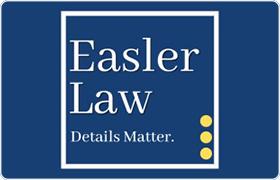Titusville Estate Planning Lawyer, Florida
Sponsored Law Firm
-
 x
x

Click For More Info:
-
Easler Law, PLLC
508 N. Harbor City Blvd. Melbourne, FL 32935» view mapEstate Law Details Matter.®
At Easler Law we recognize that small details can make a tremendous impact. Attorneys who take the time to listen carefully and understand their clients.
800-676-7130
Includes: Gift Taxation
Bradly Roger Bettin
Corporate, Construction, Contract, Estate Planning
Status: In Good Standing Licensed: 41 Years
Christina Bridget-Jo Sutch
Business, Contract, Corporate, Estate Planning
Status: In Good Standing Licensed: 26 Years
Bonnie Klein Rhoden
Wills & Probate, Trusts, Estate Planning, Divorce & Family Law
Status: In Good Standing Licensed: 10 Years
 Andrew Easler Melbourne, FL
Andrew Easler Melbourne, FL Practice AreasExpertise
Practice AreasExpertise
